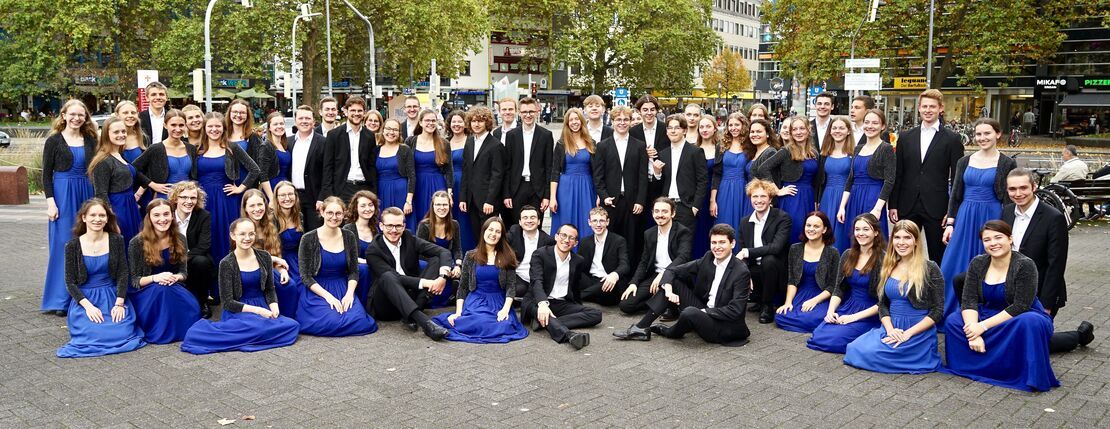
Neuer Kammerchor around the World
vakantio.de/neuerkammerchorgoesbrazil
Sardinia Day 4 - A Trip to the Mountains
Argitaratu: 29.05.2023
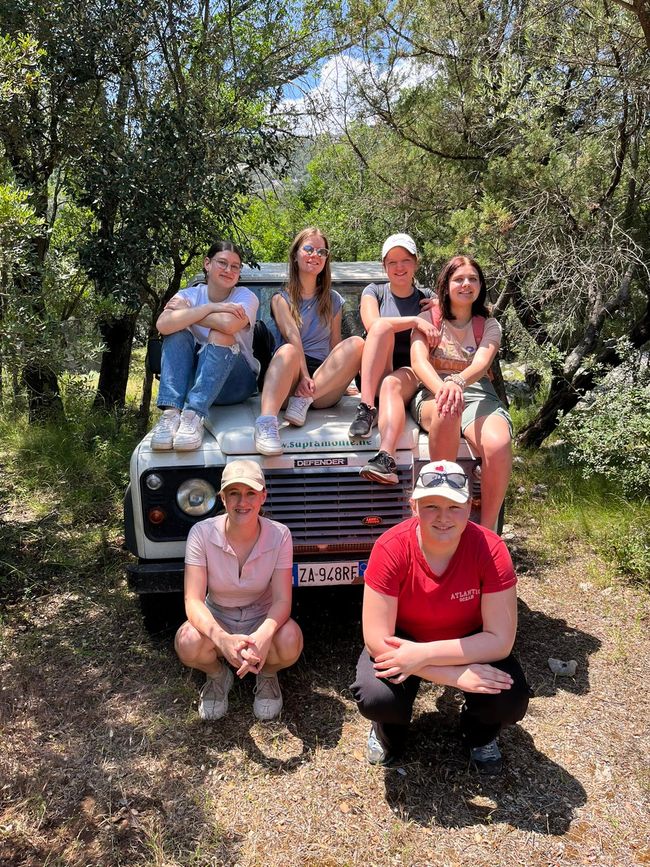
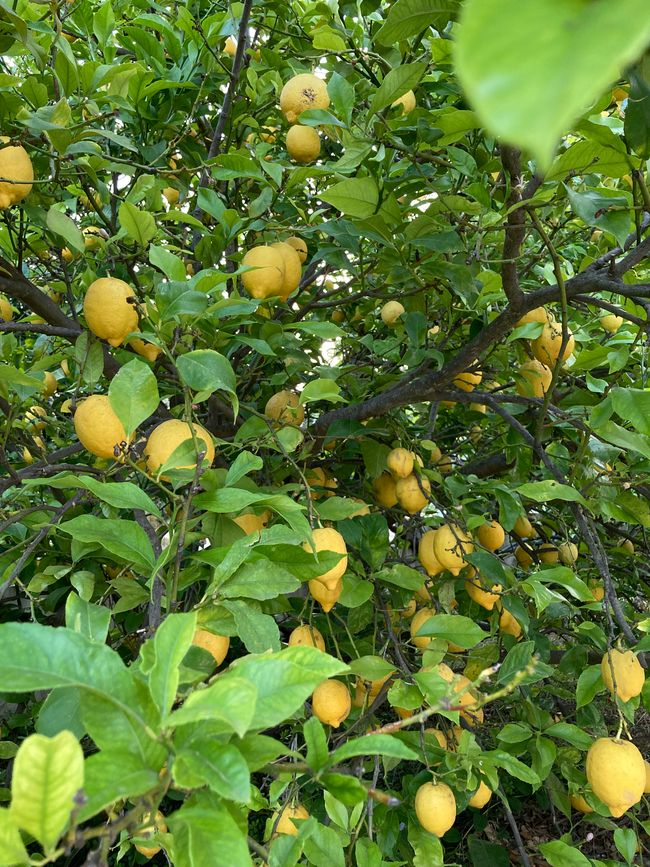
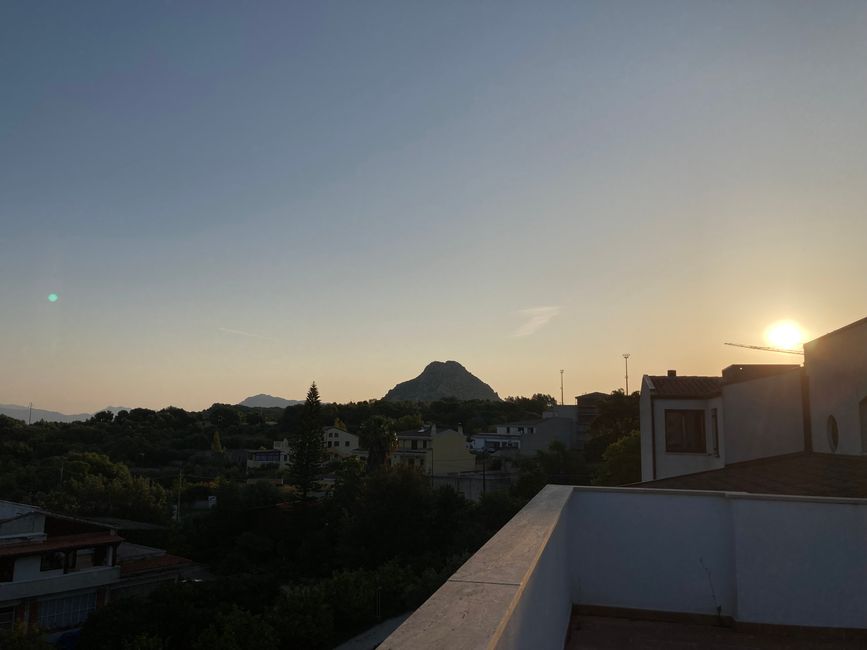
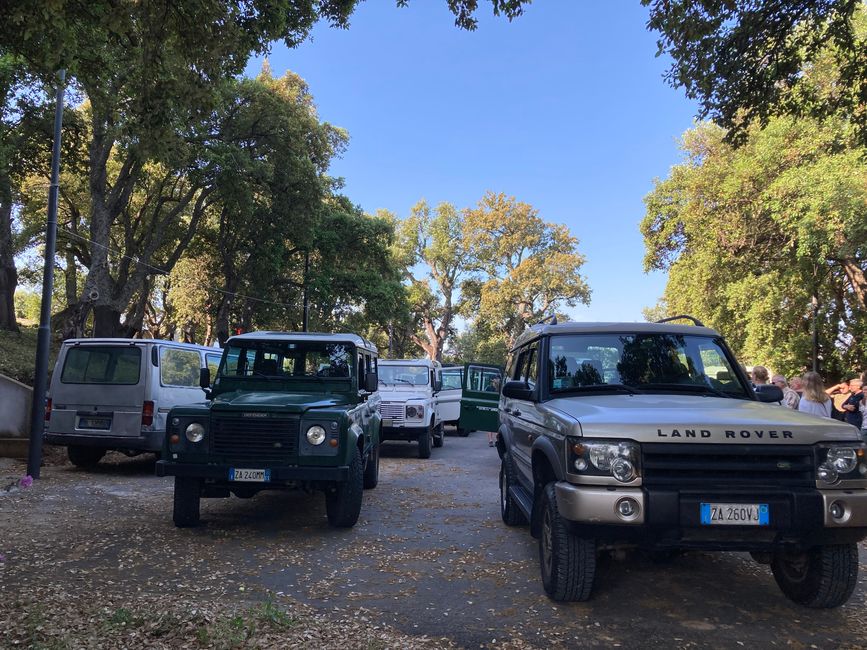
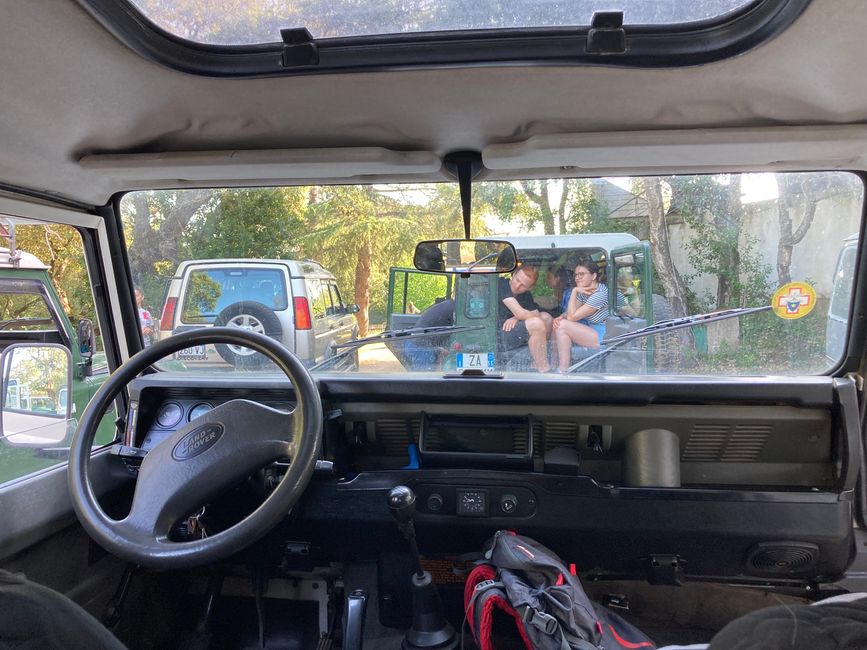
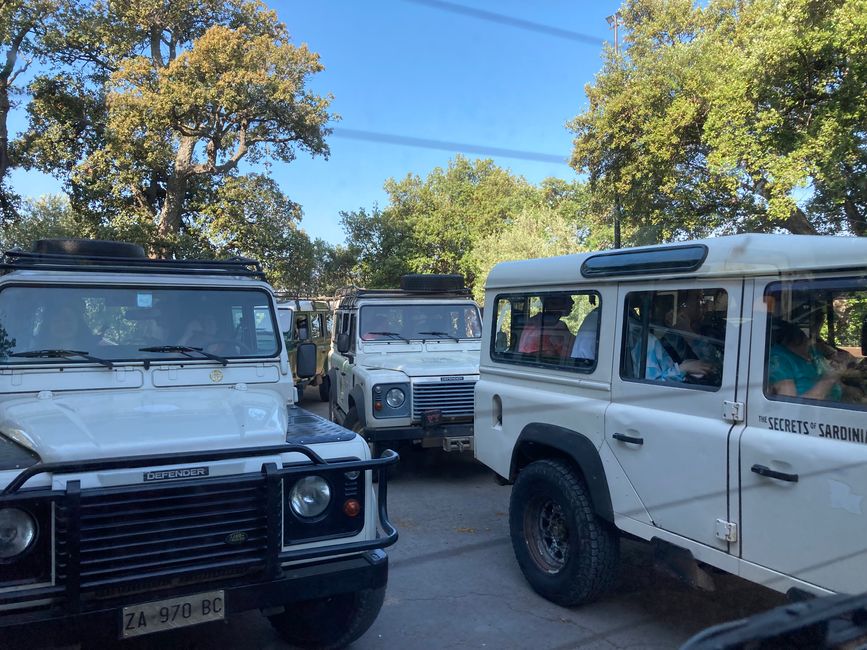
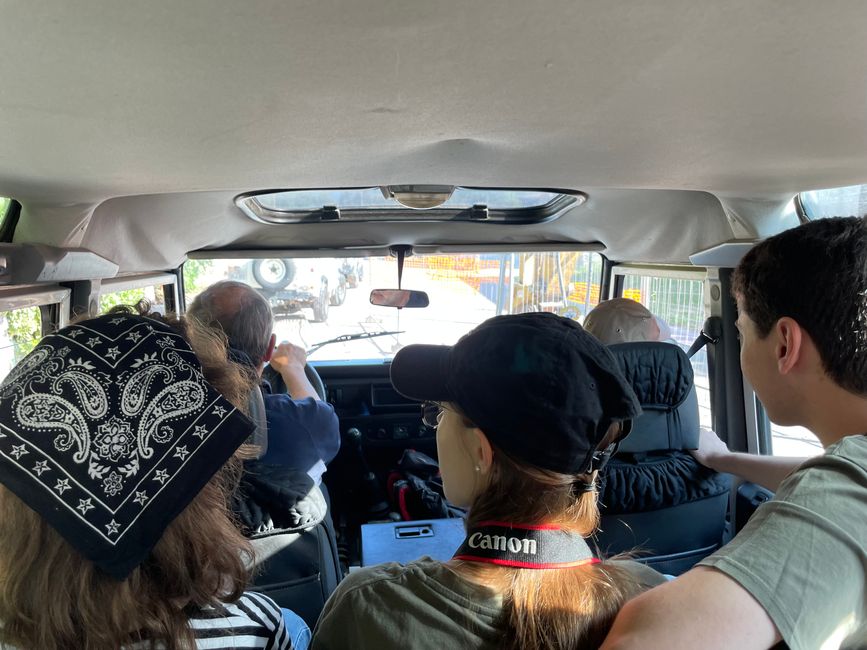
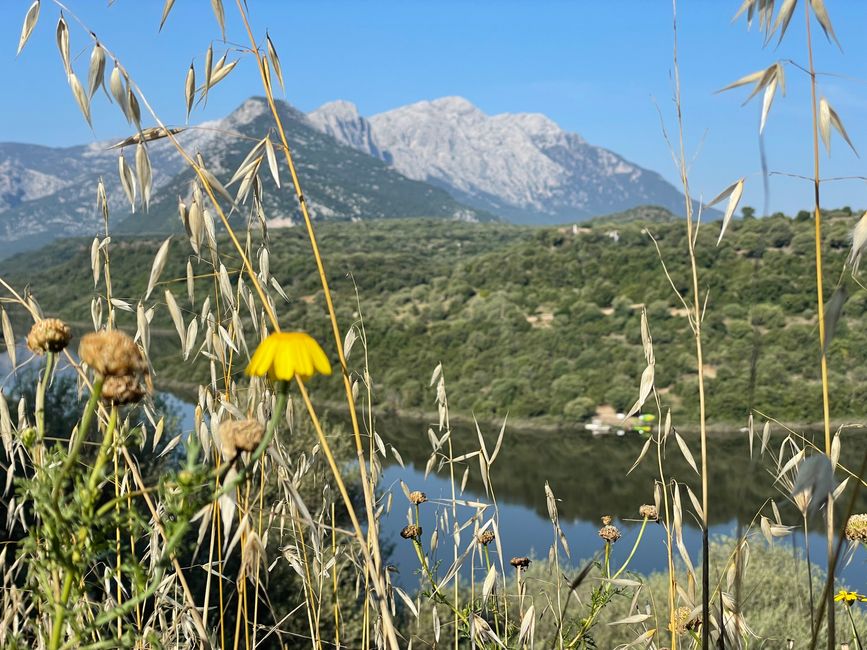
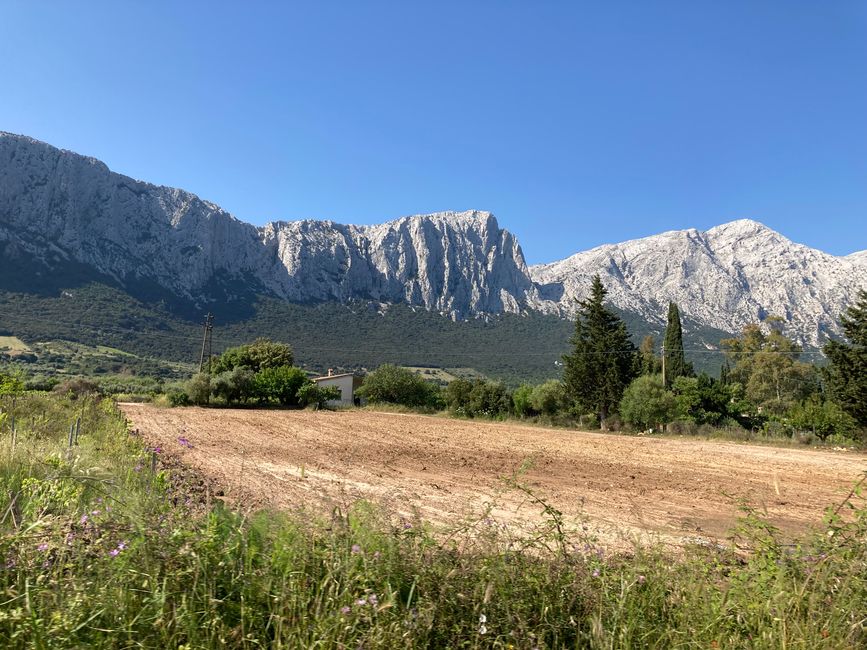
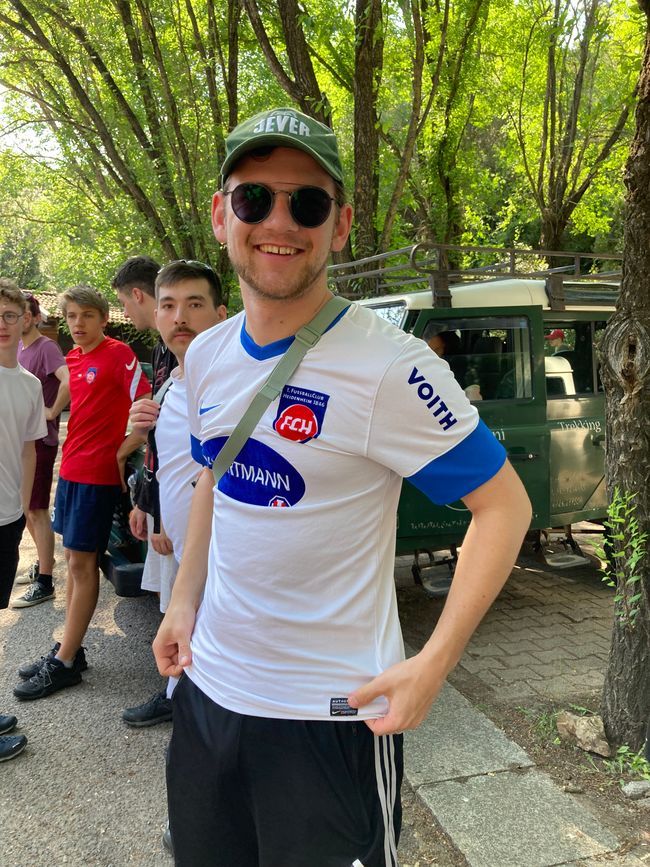
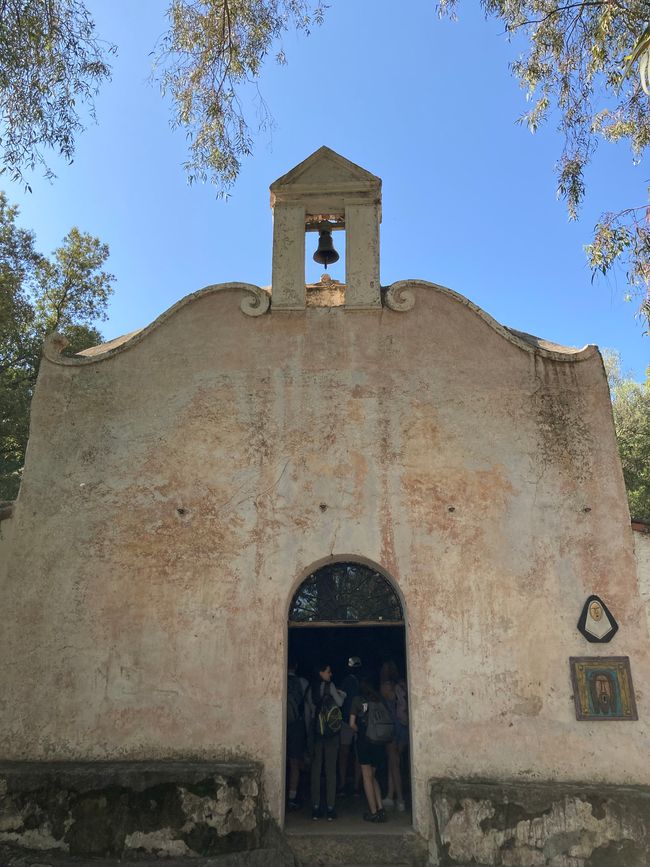
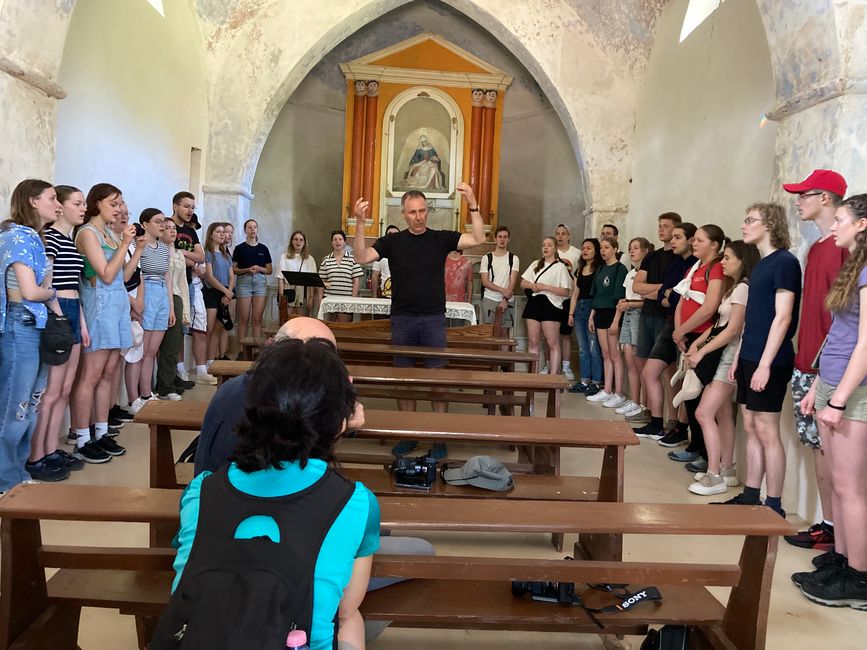
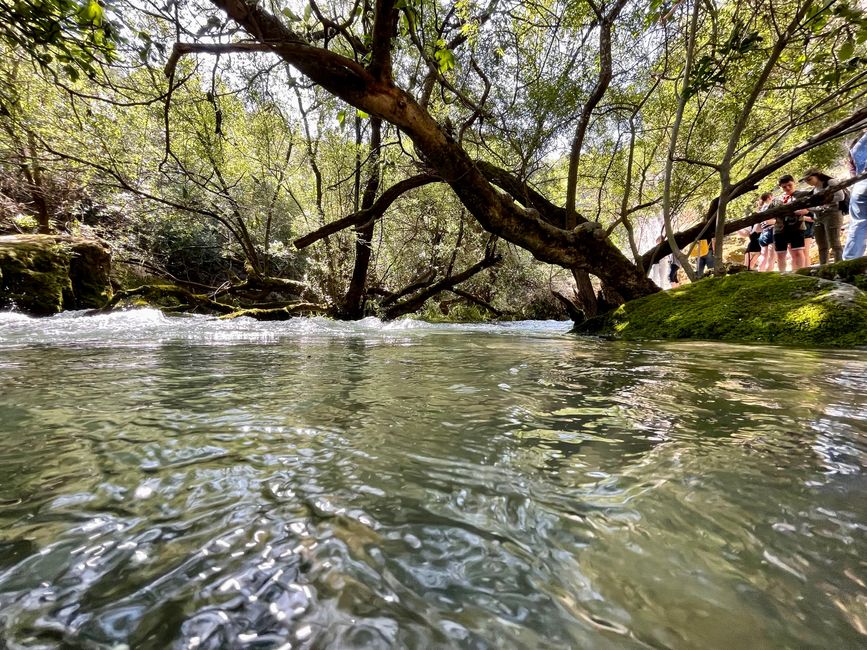
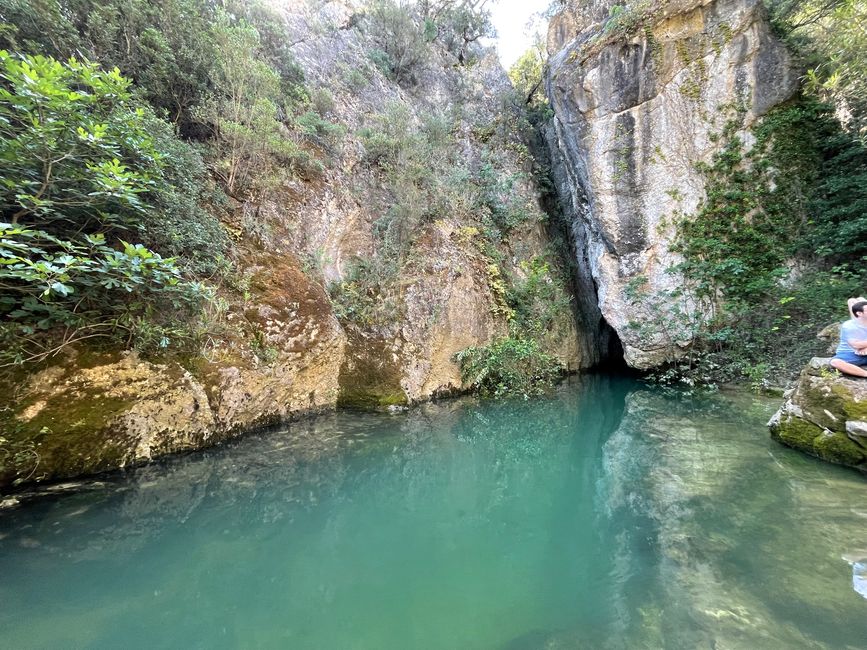
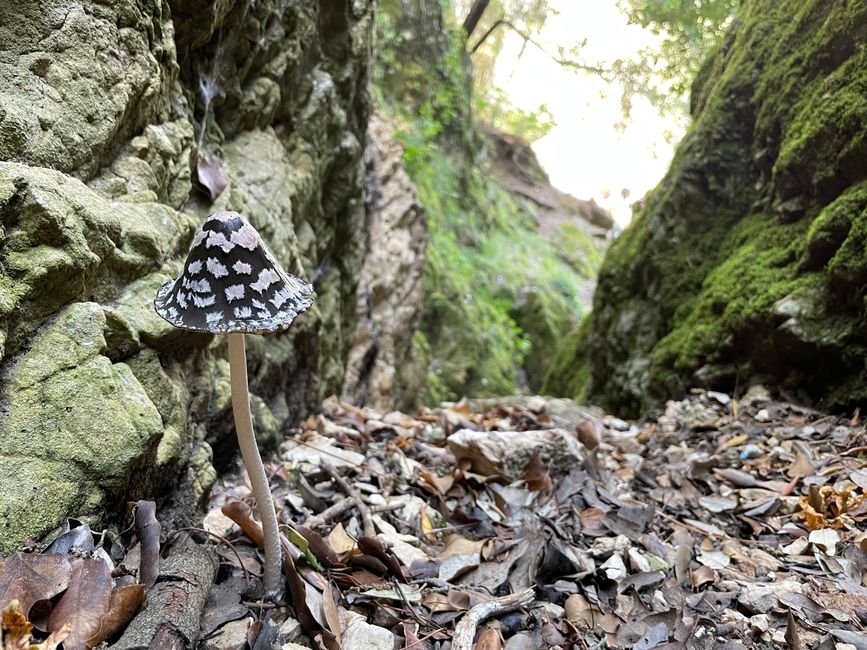
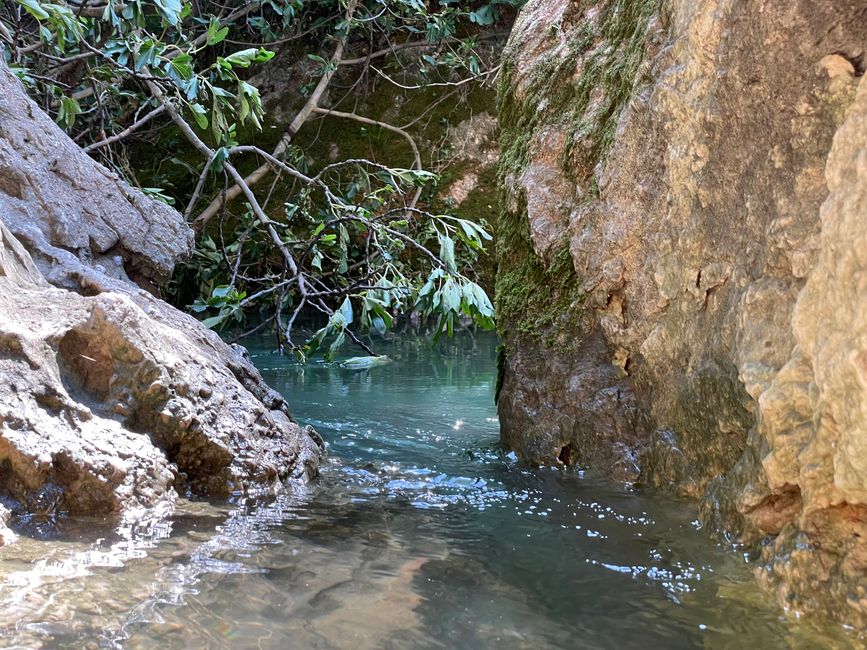
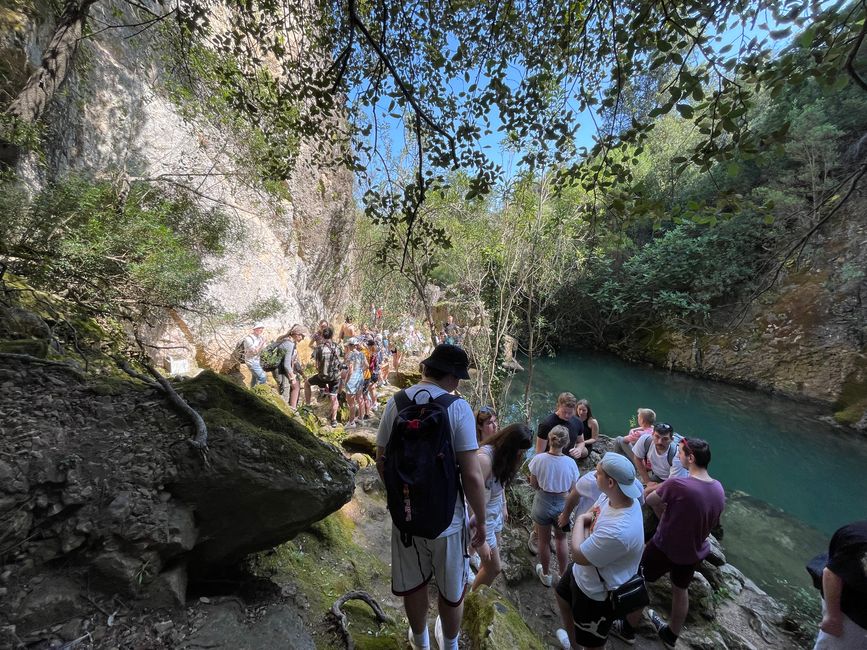
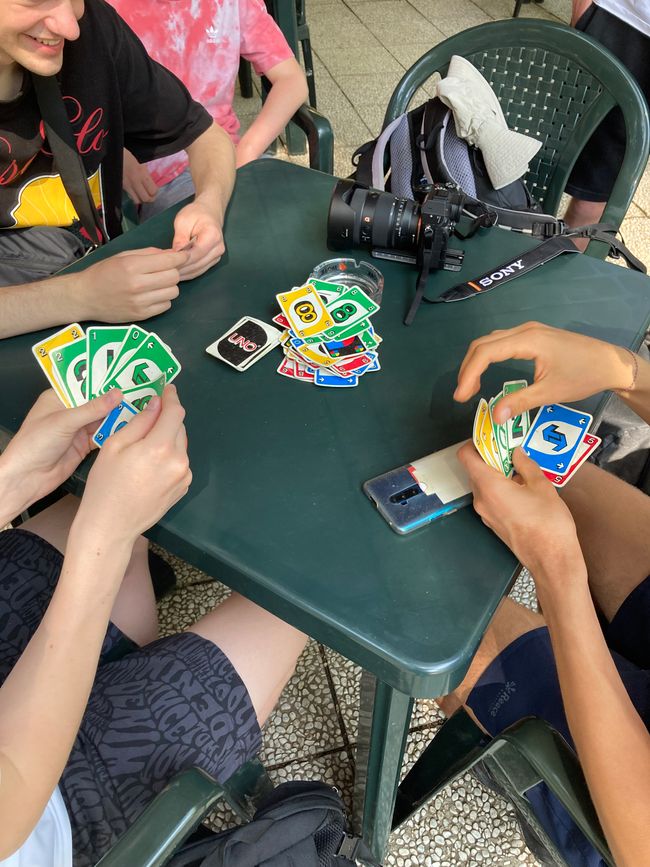
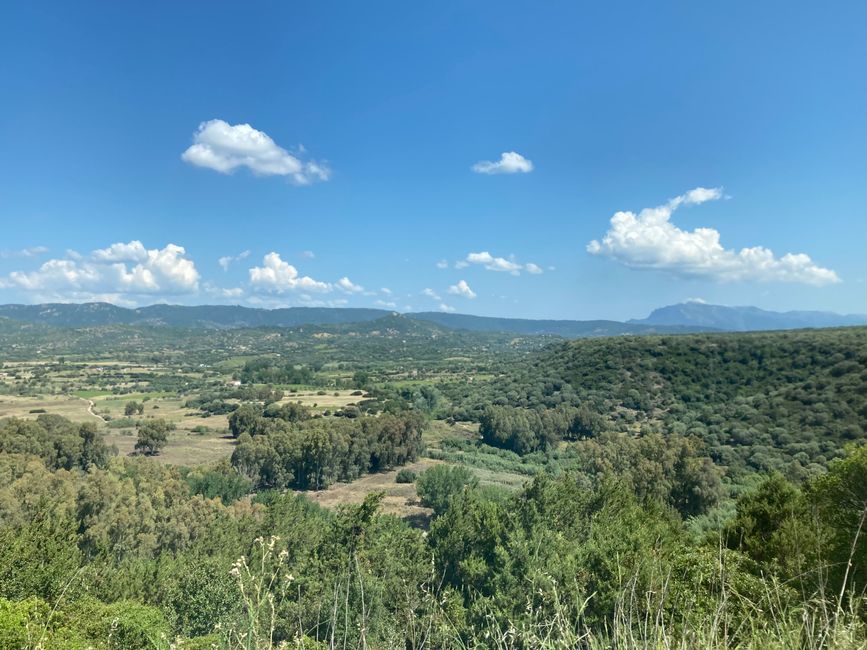
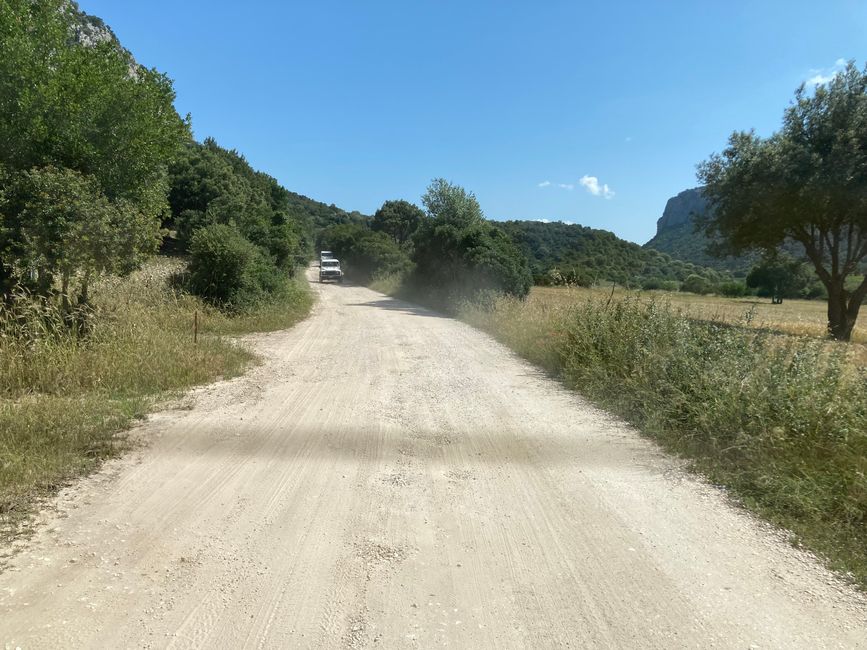
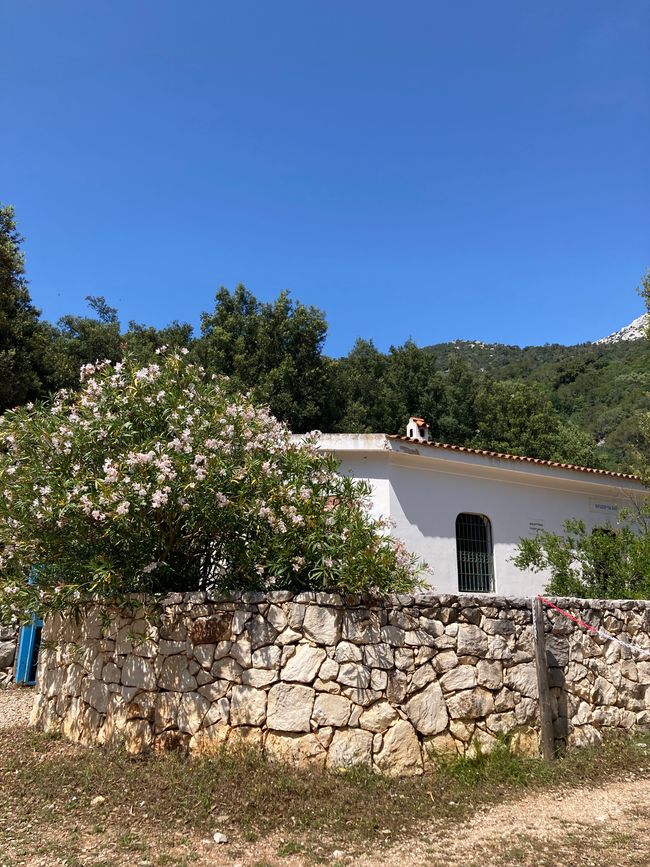
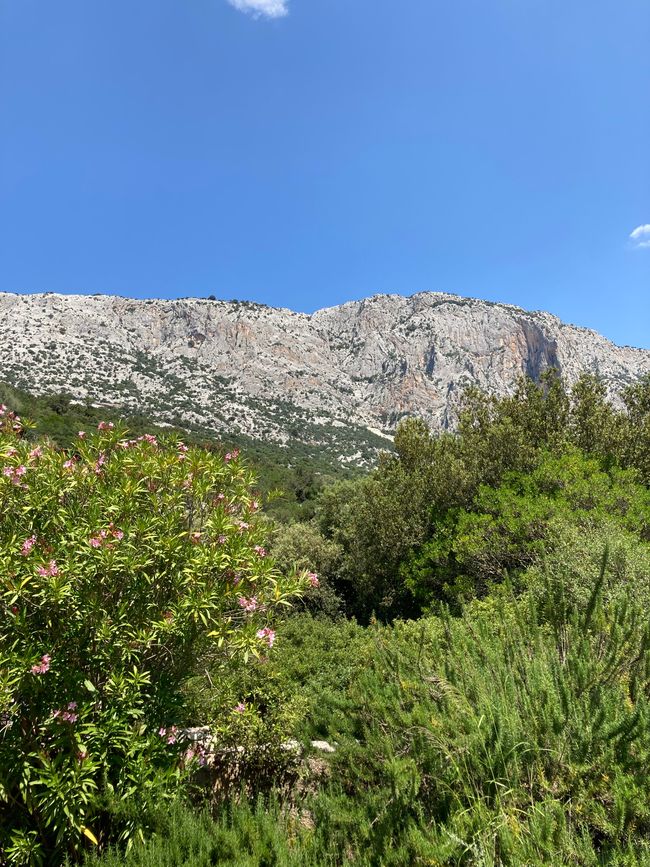
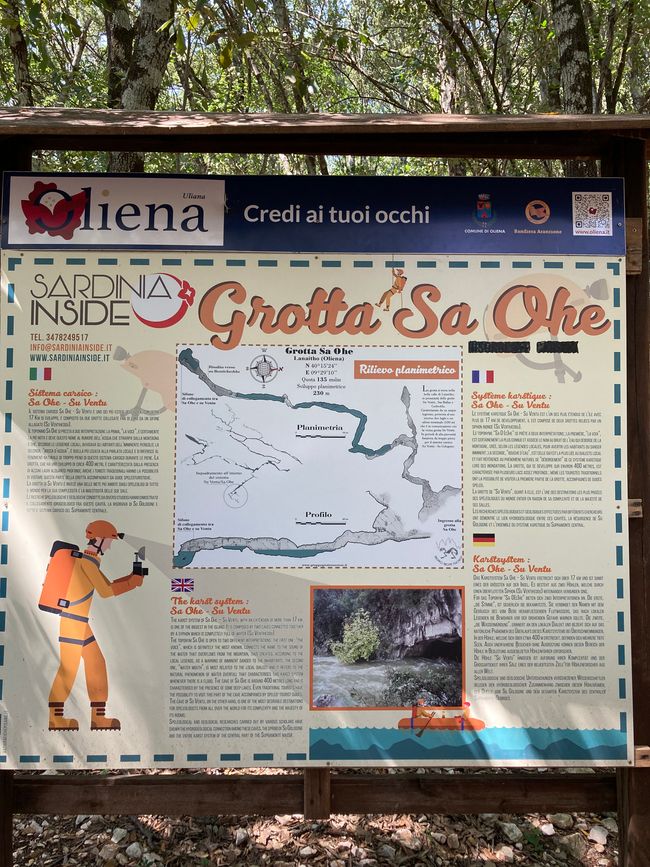
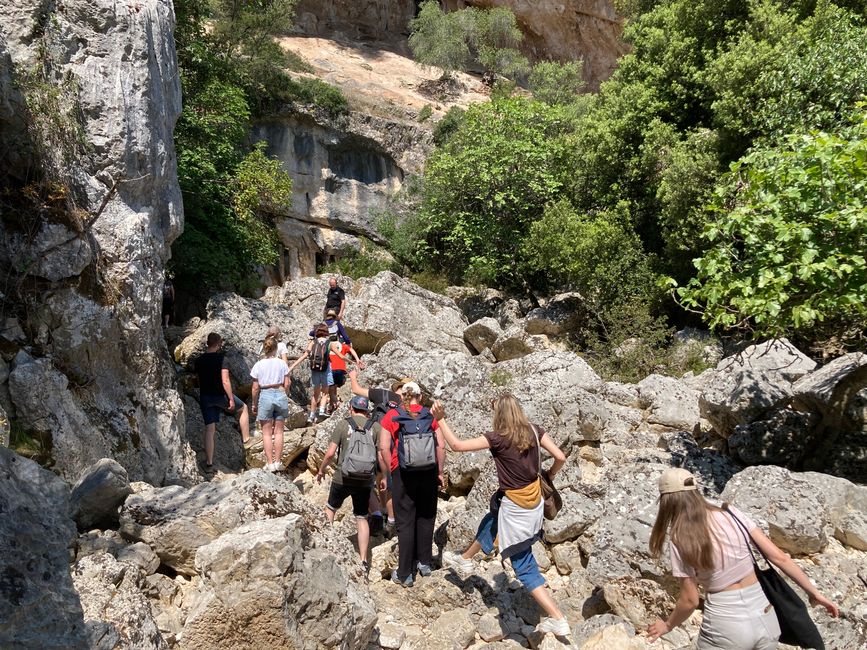
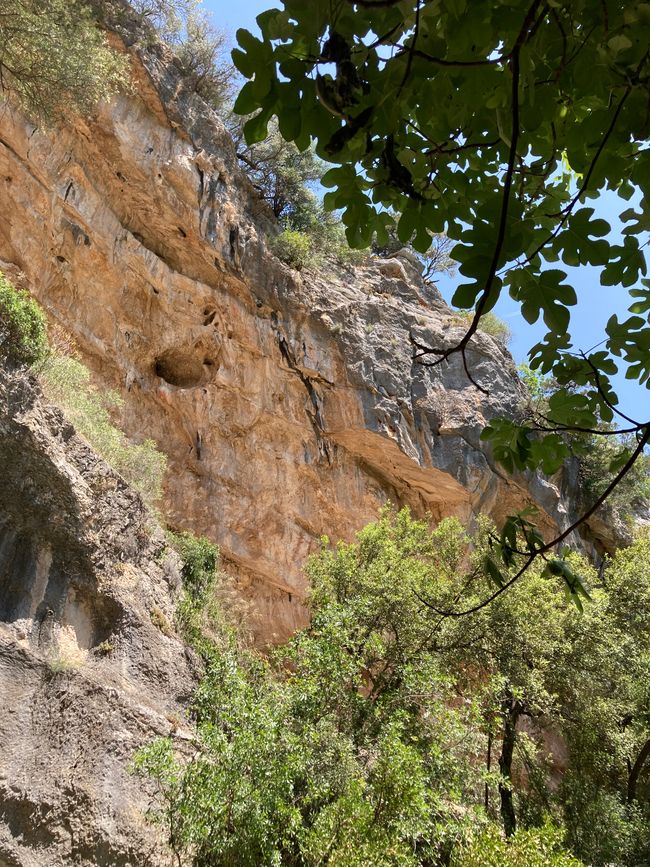
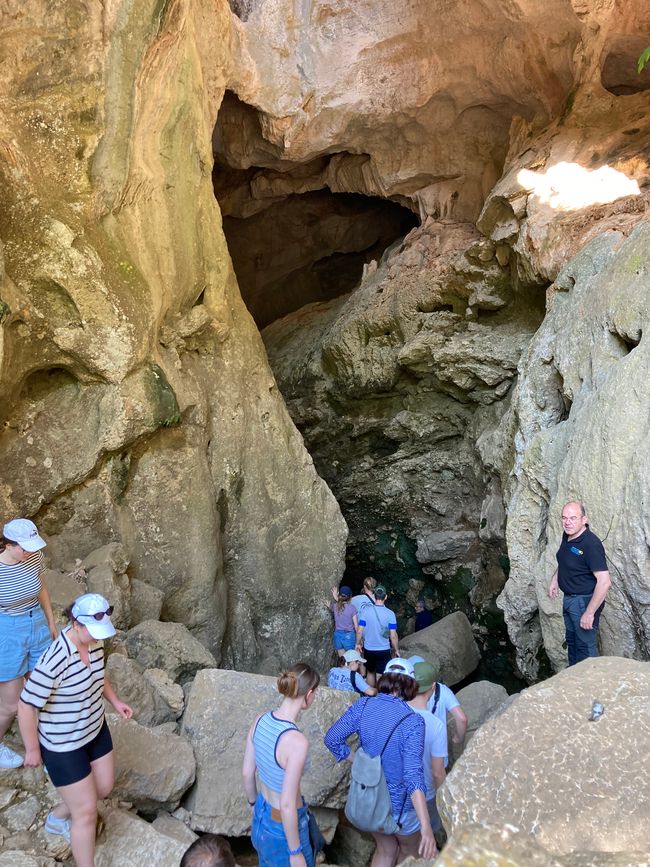
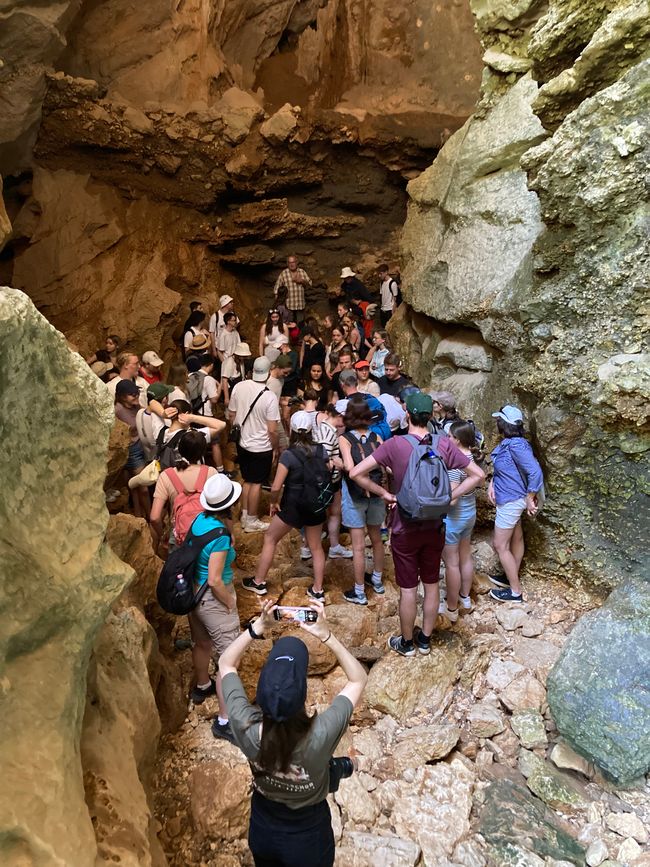
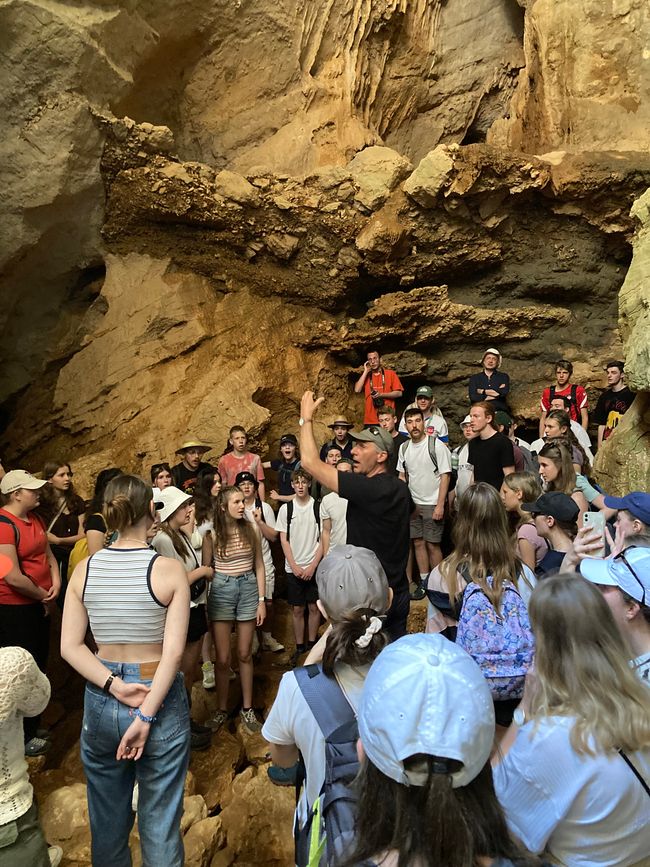
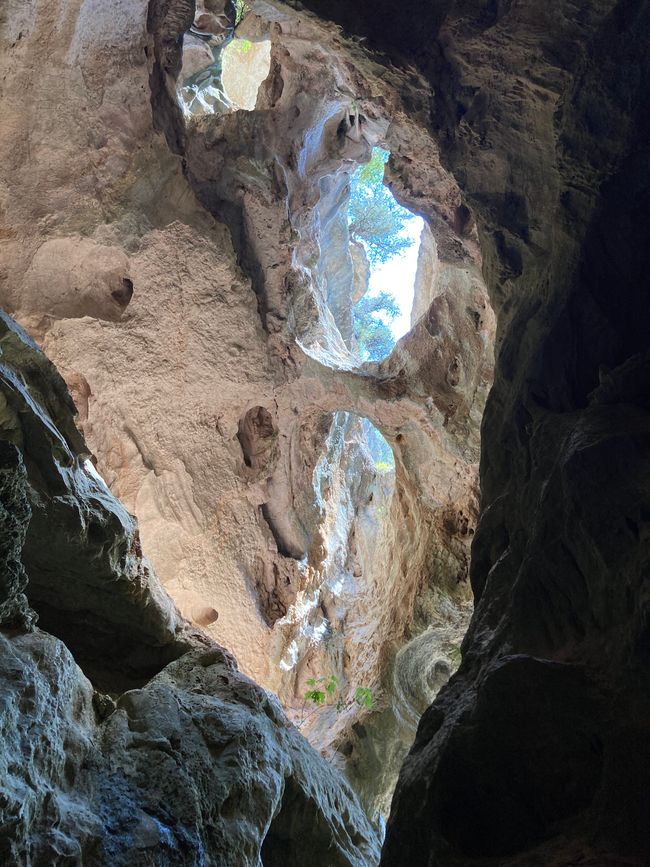
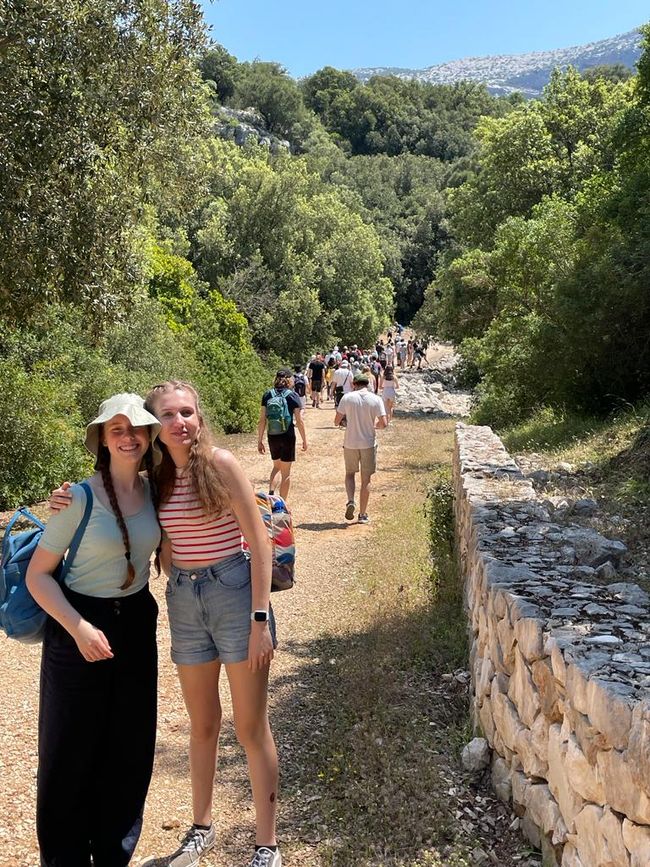
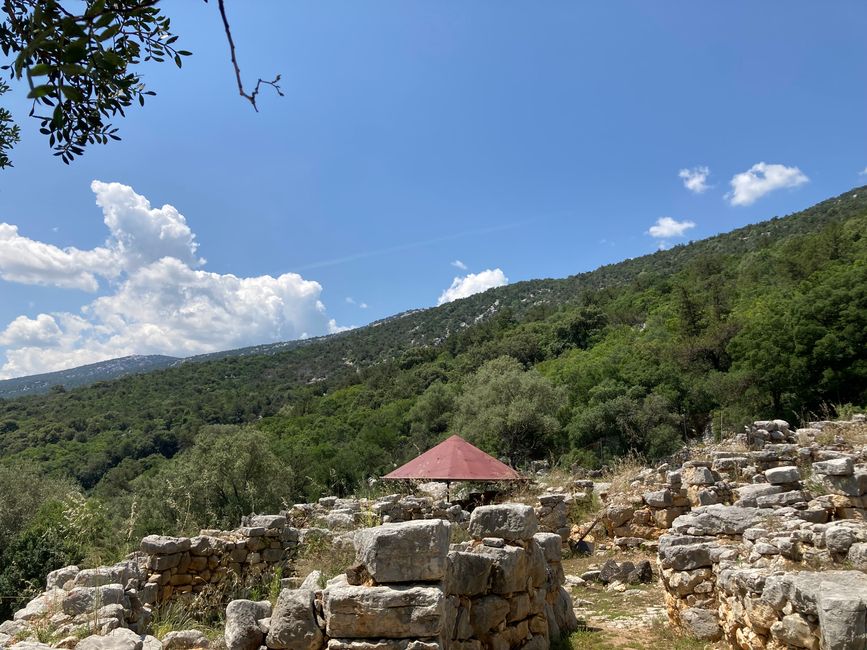
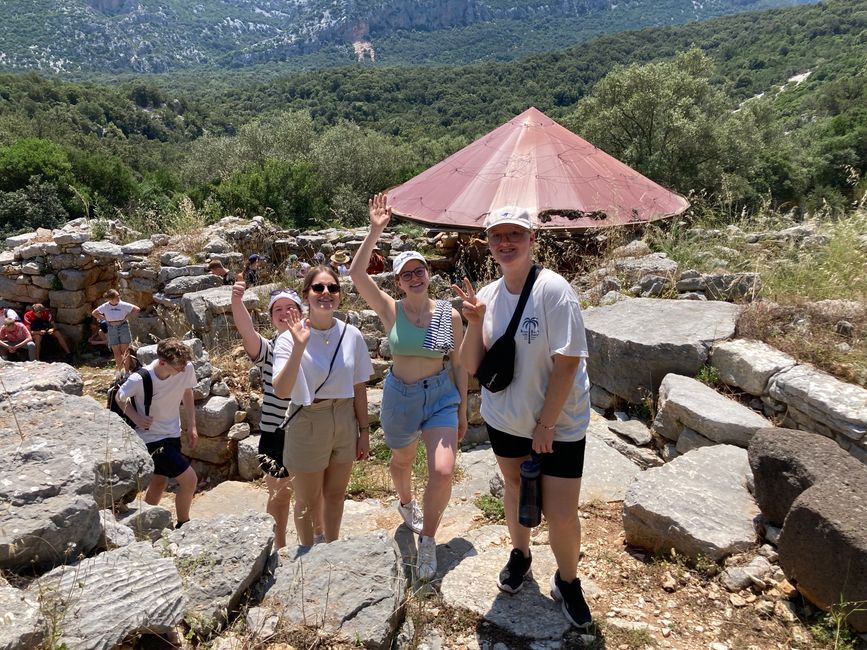
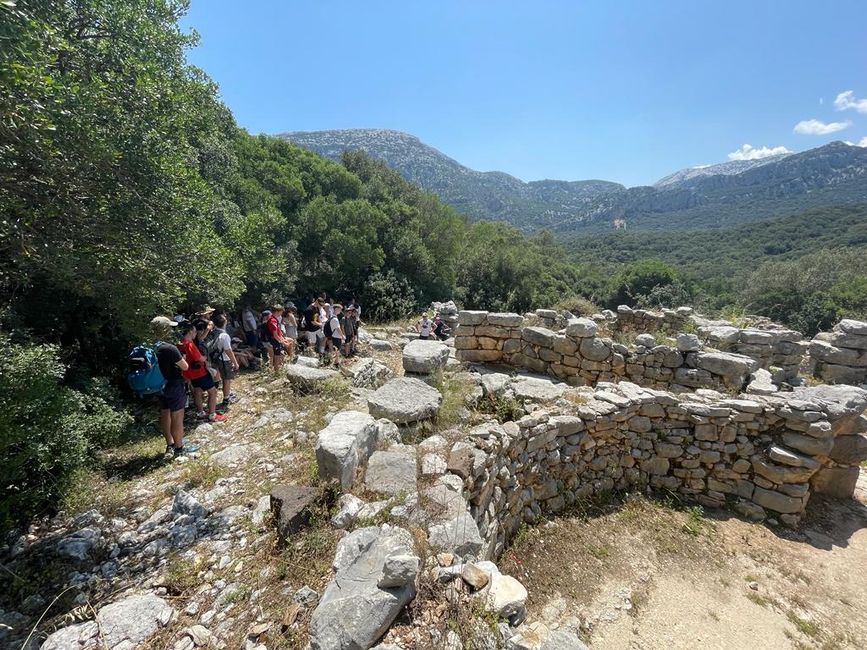
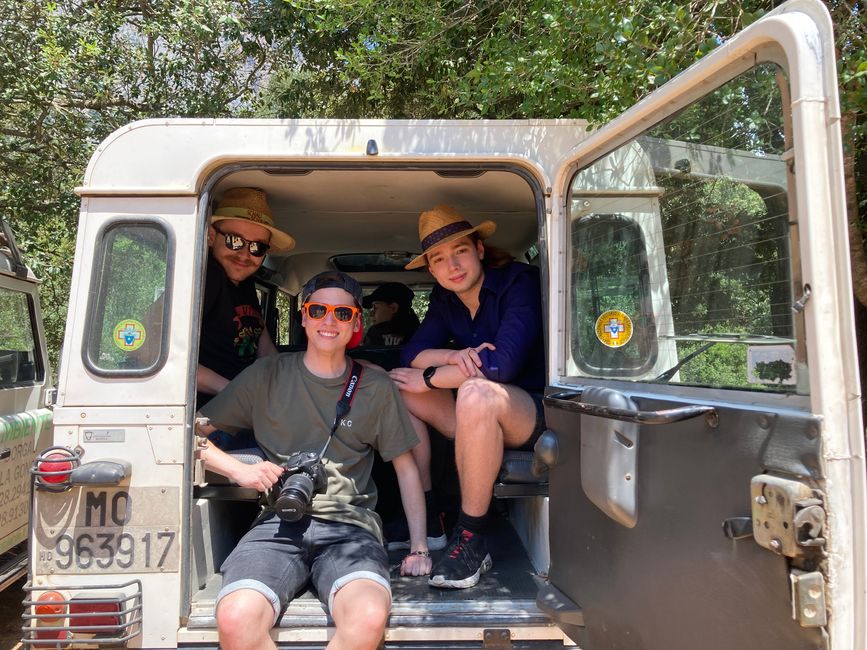
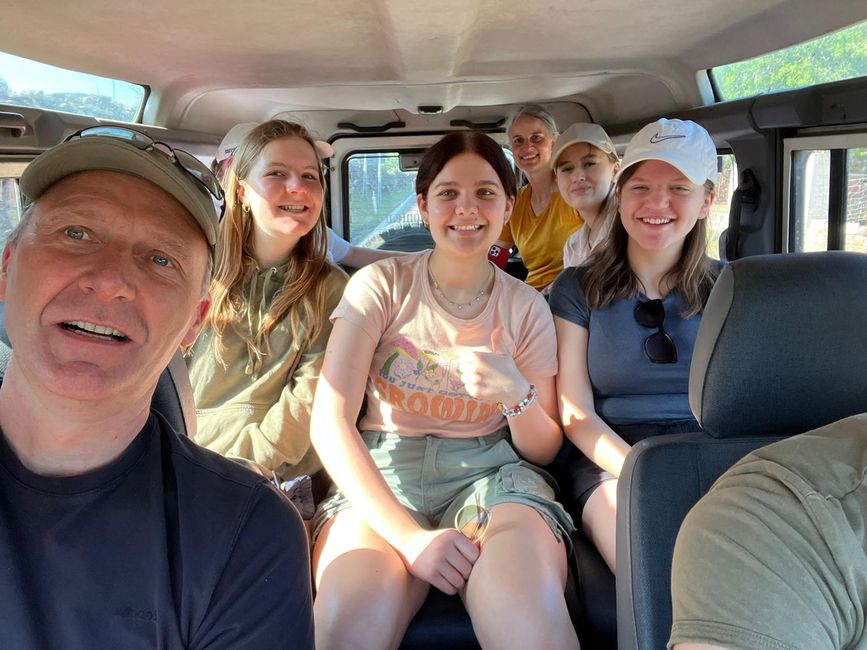
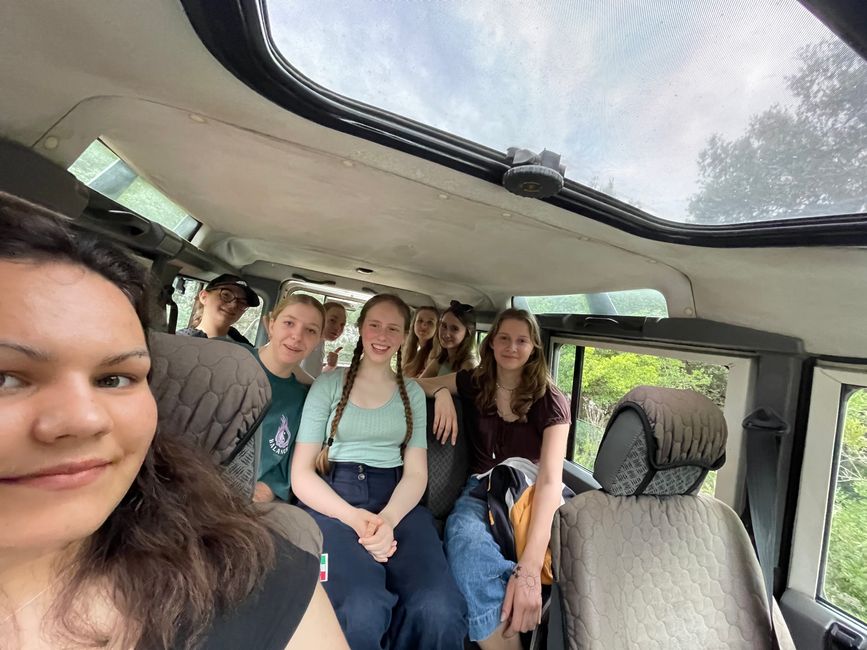
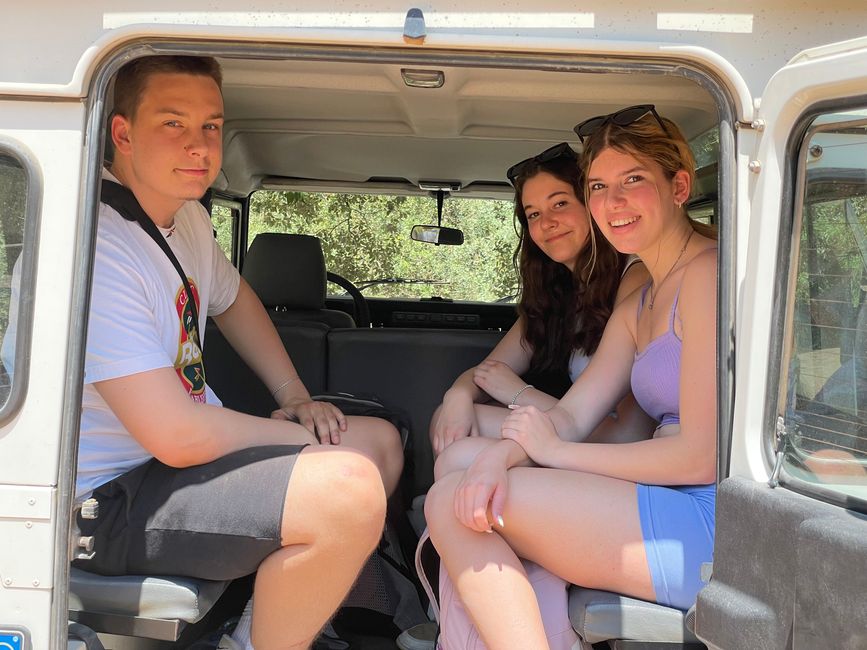
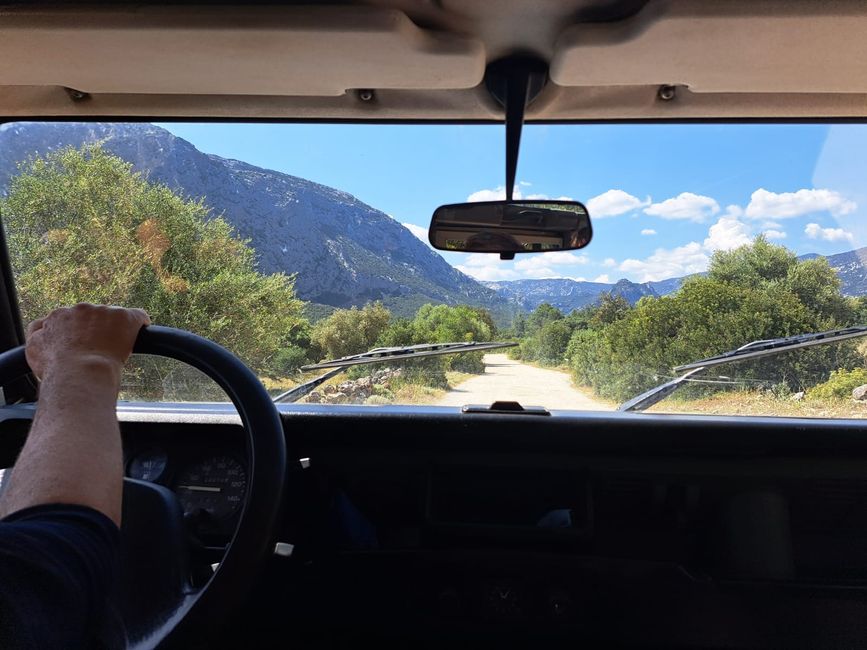
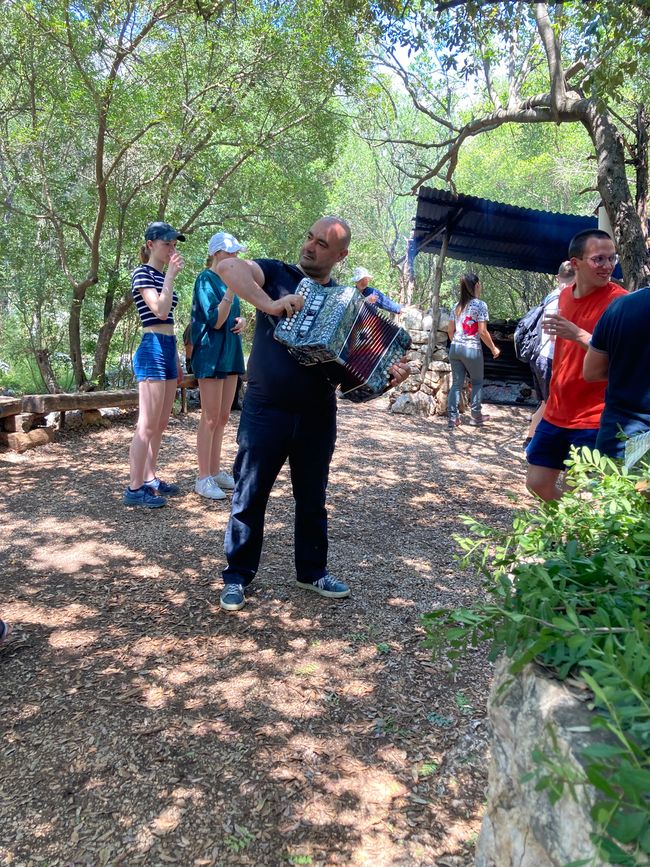
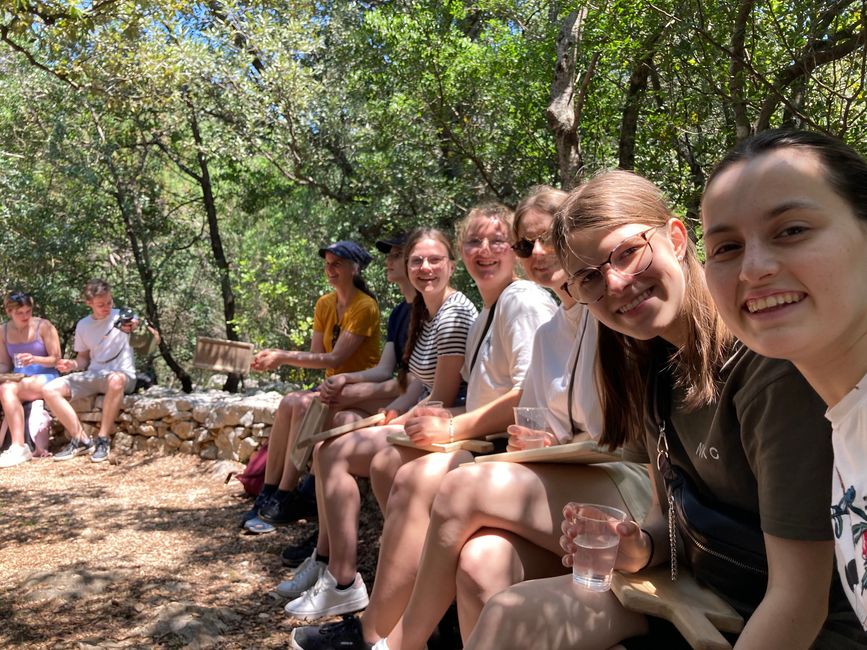
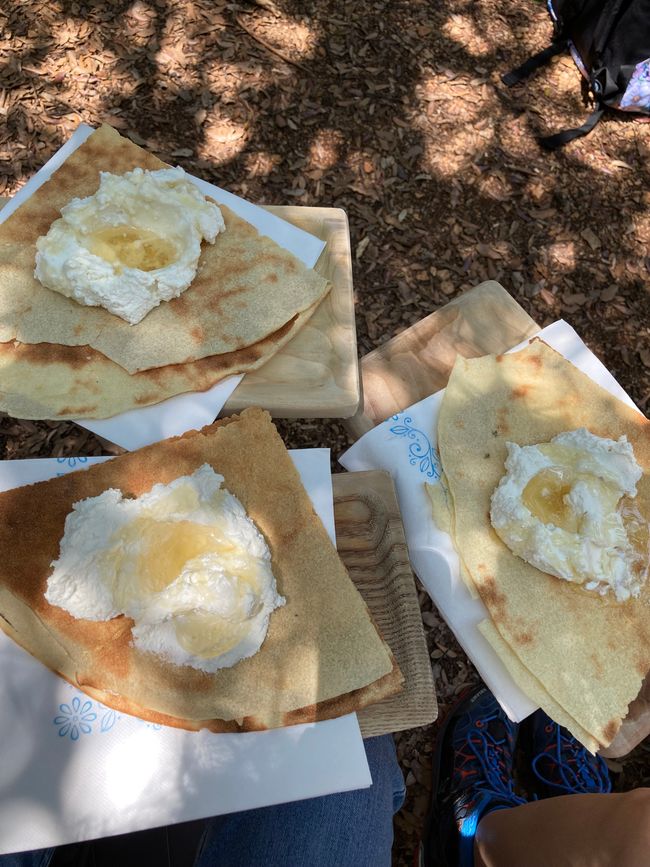
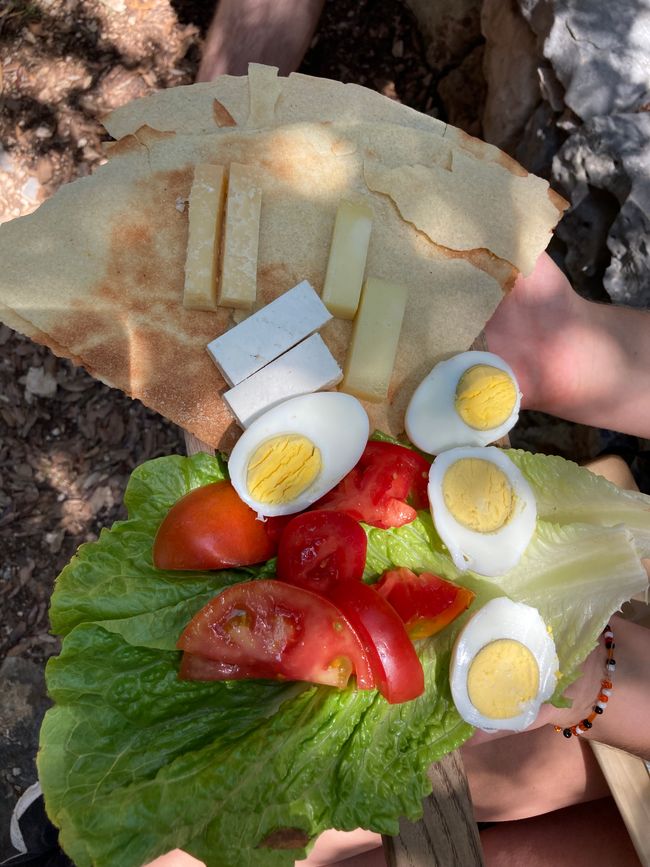
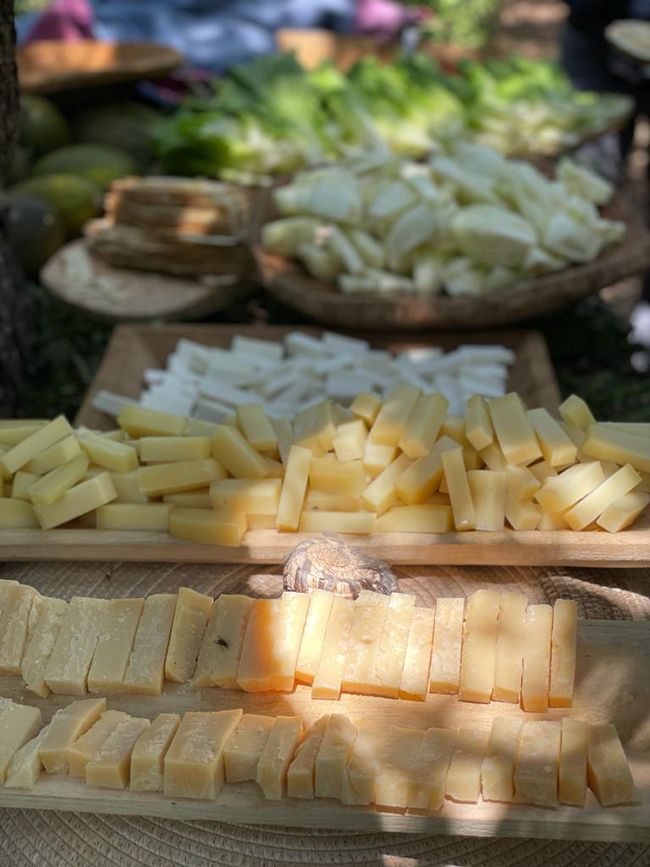
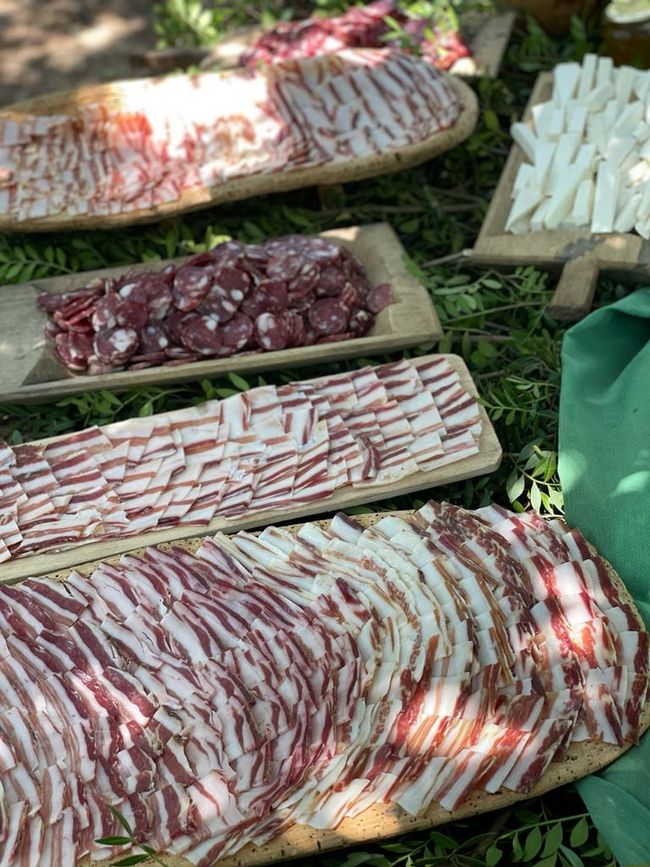
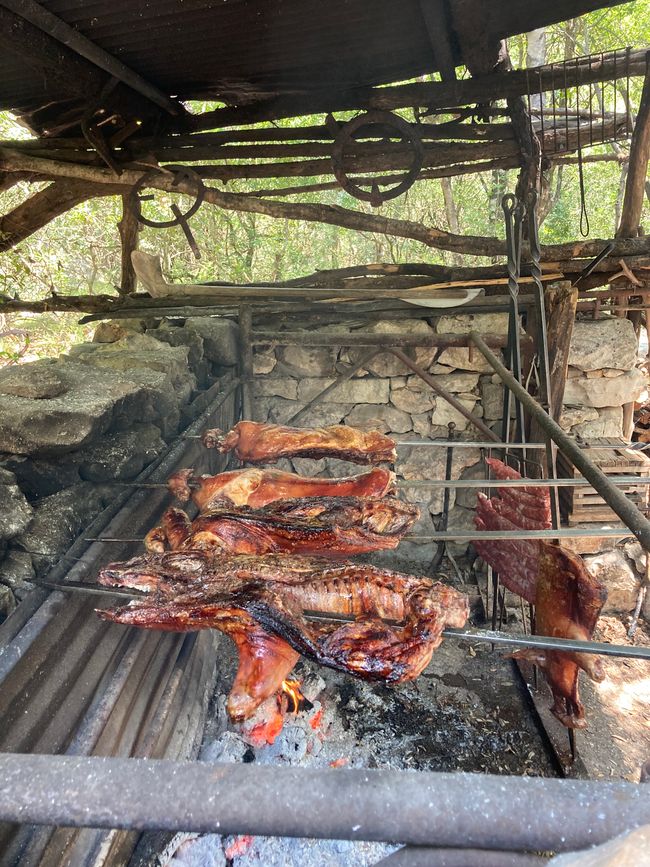
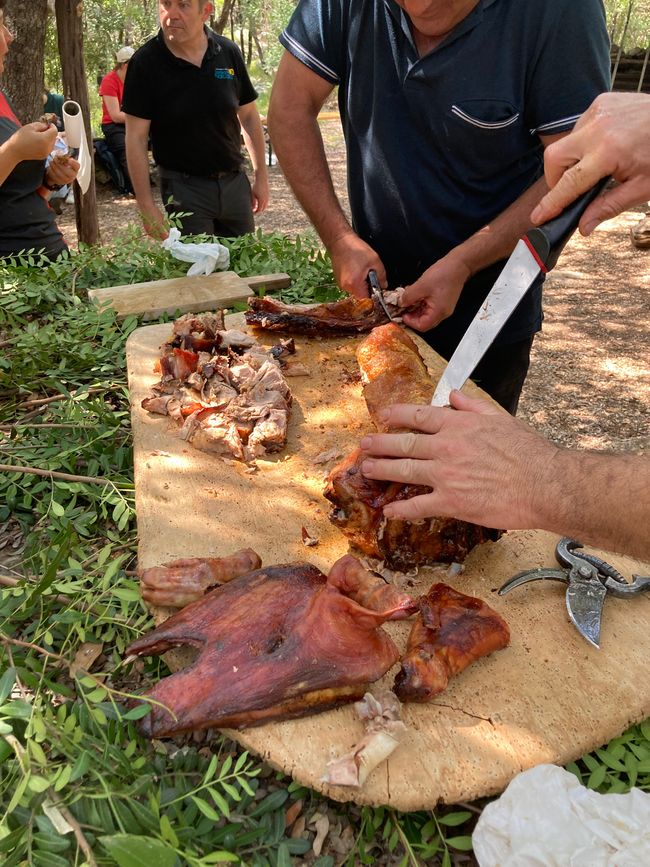
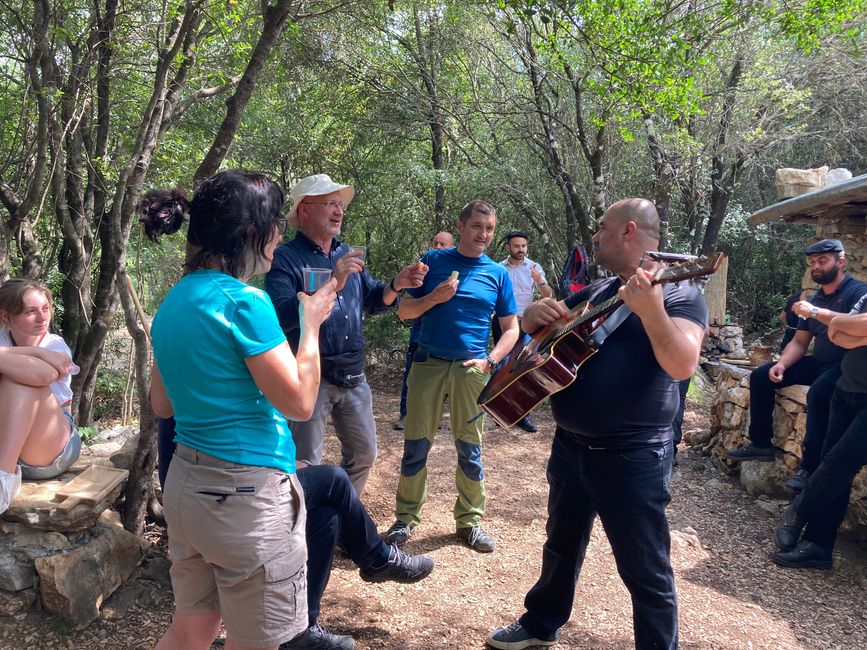
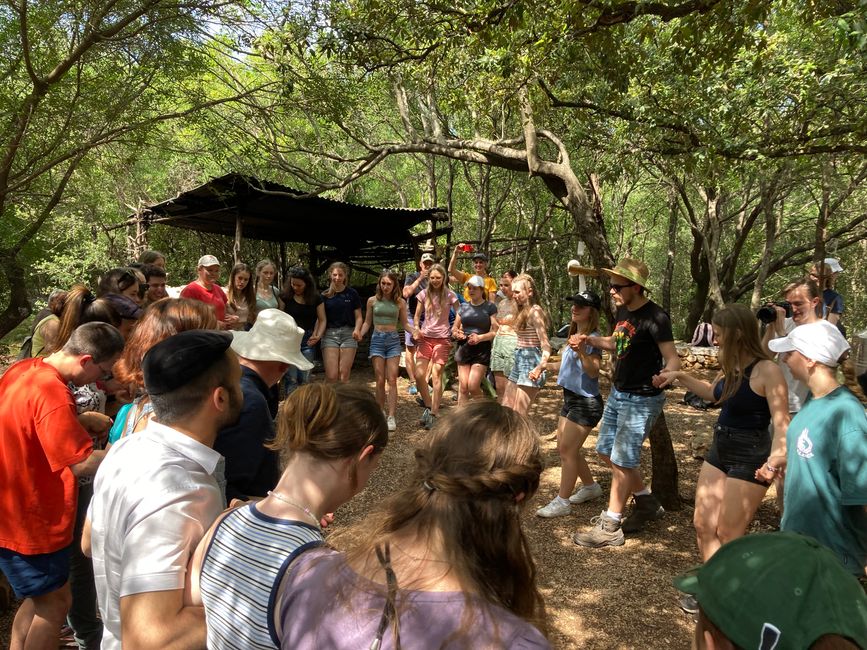
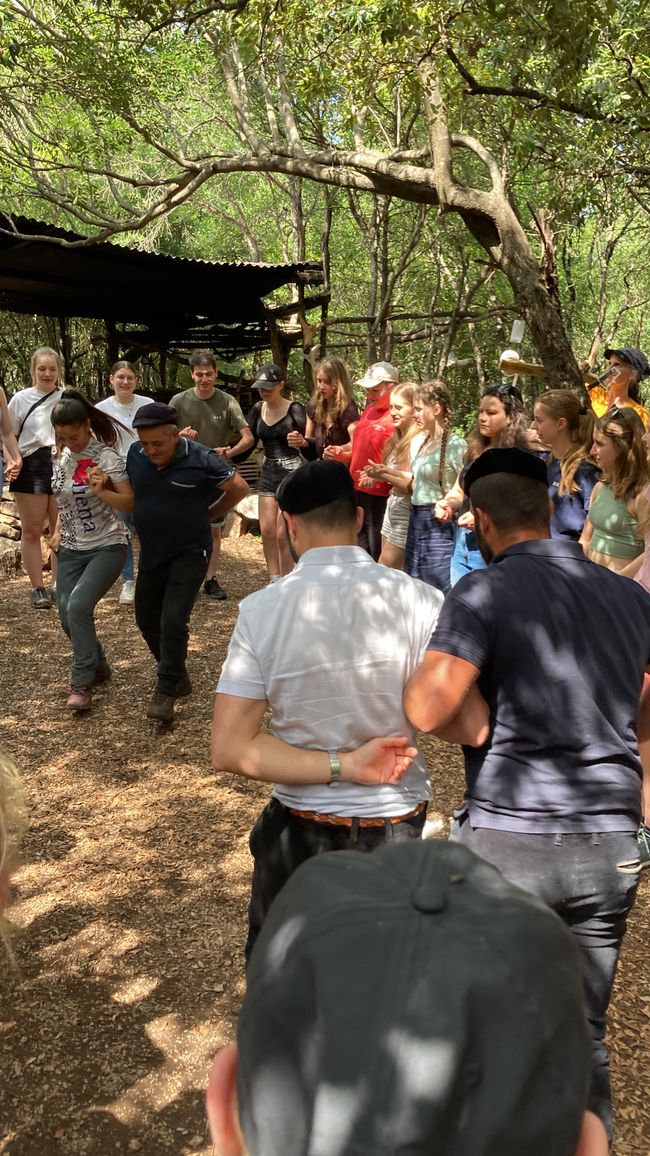
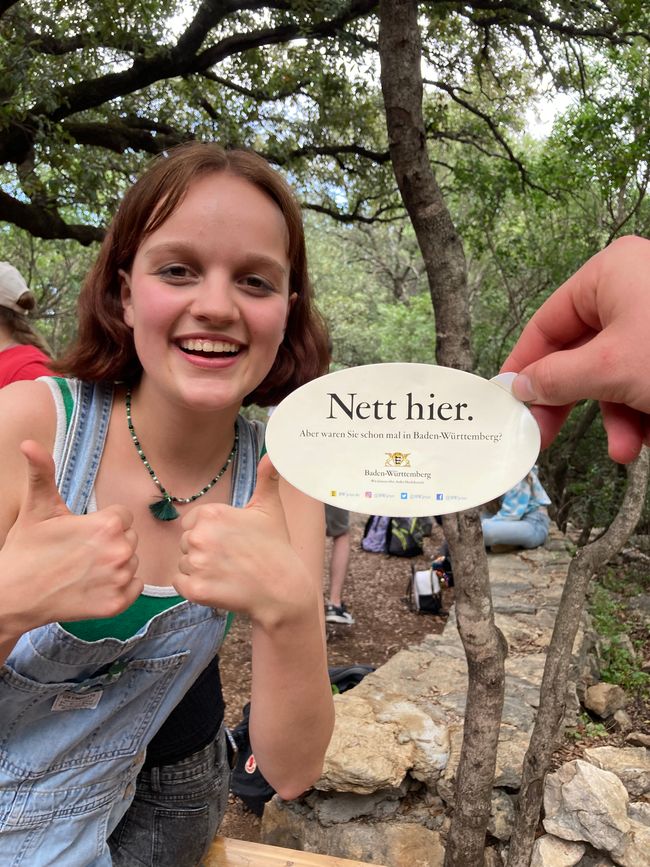
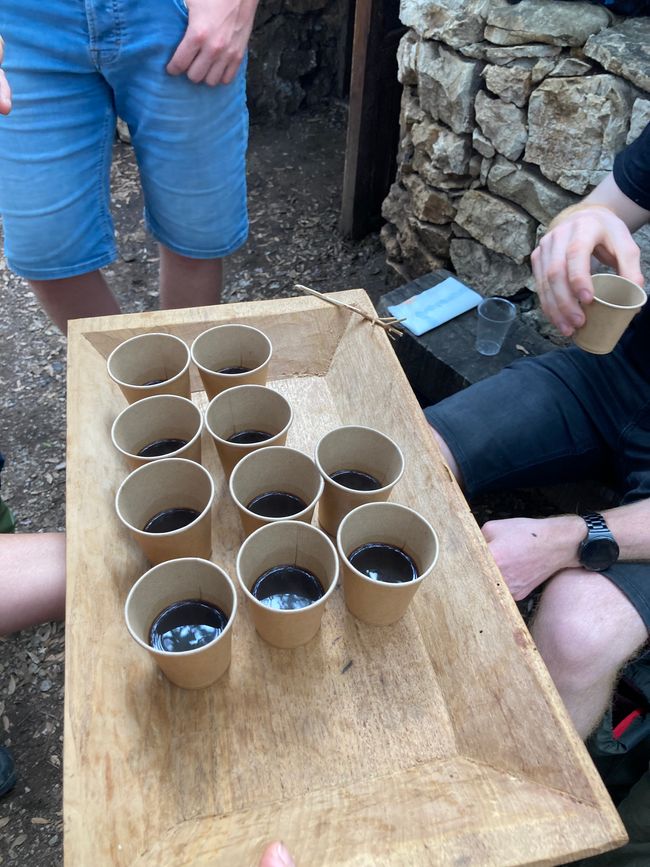
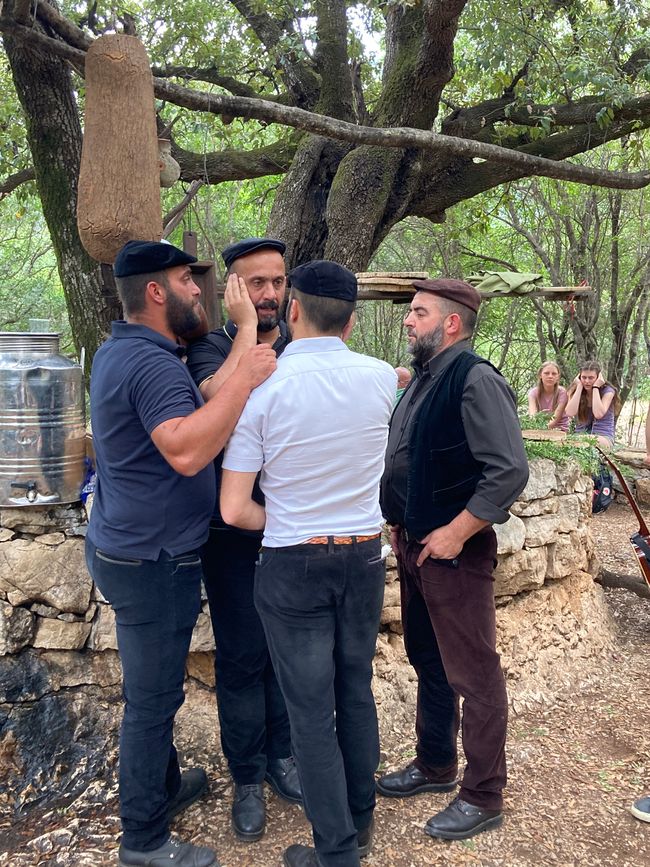
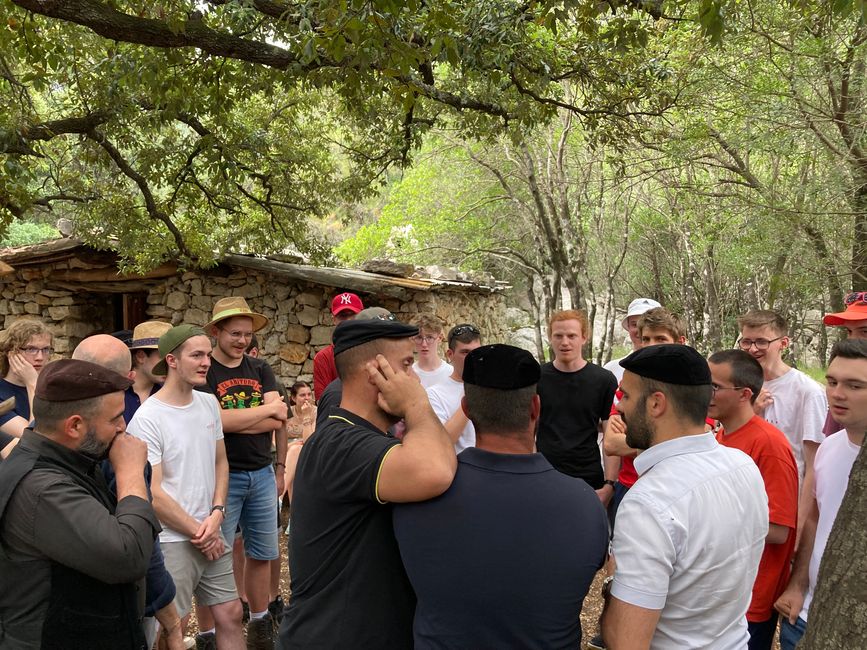
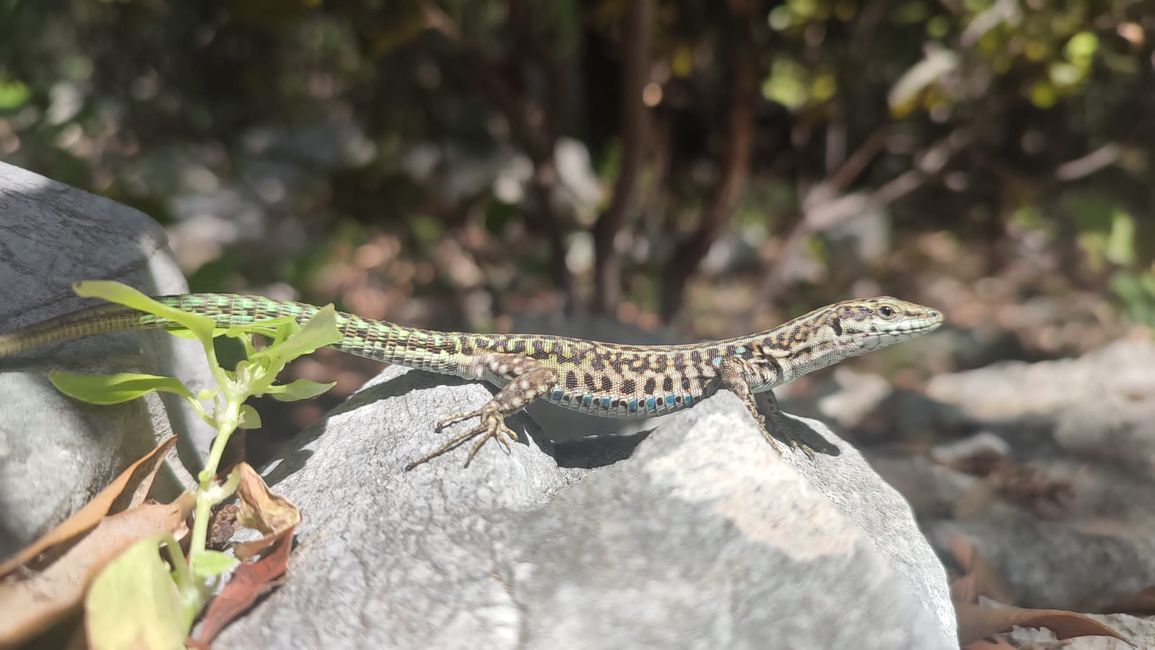
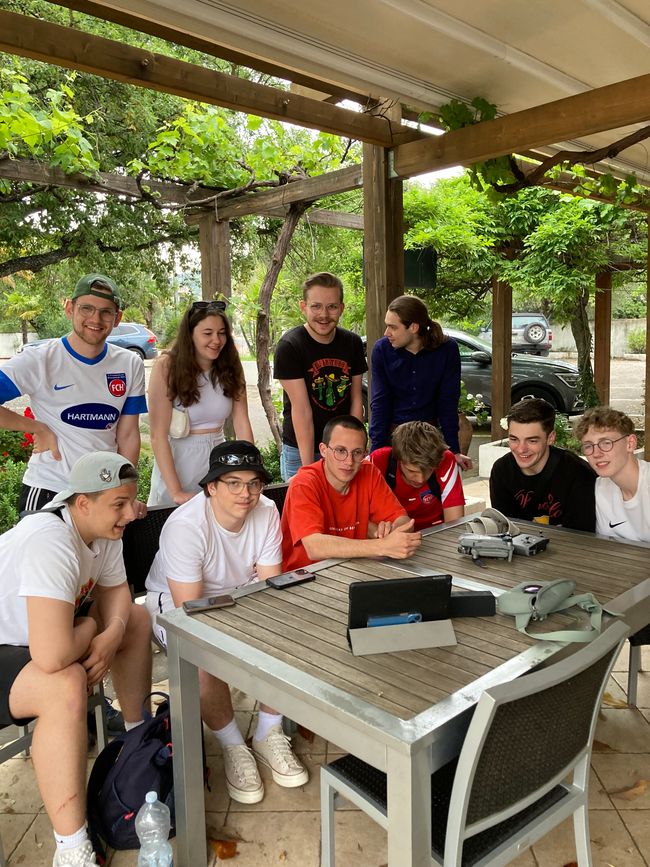
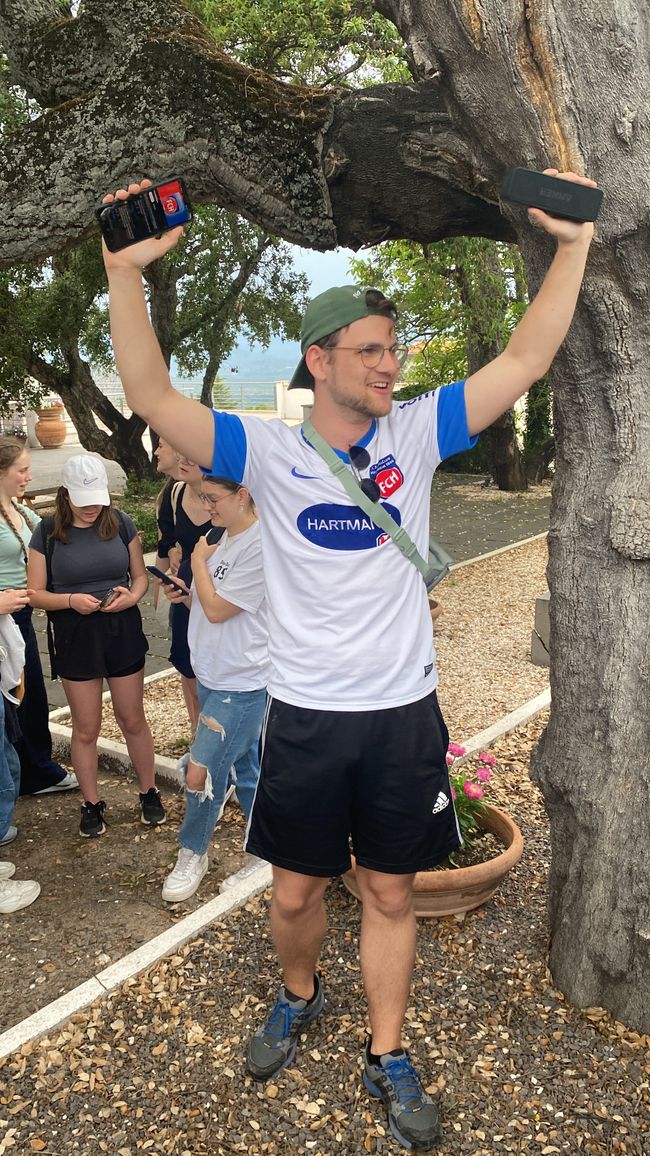
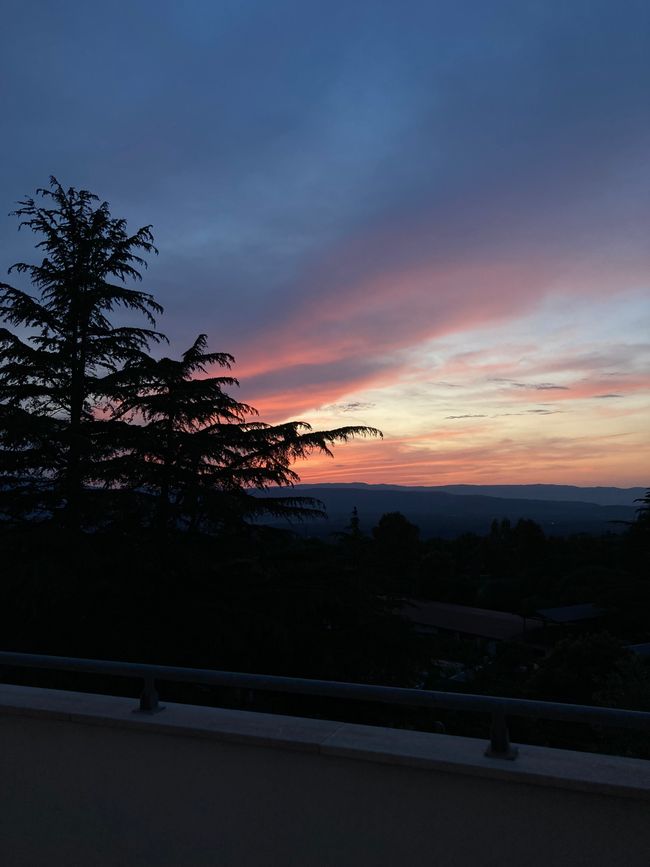
Harpidetu Buletinera
On this morning, we were once again woken up by the bright sunshine. Equipped with sunscreen and enough to drink, we were picked up by eight Landrovers after breakfast and started our trip to the mountains.
The first destination was Su Gologone, a karst spring near Oliena, about 20 km from Dorgali. Our group was accompanied by a nice gentleman who told us many interesting facts during our tour. At the spring, we learned that over thousands of years, water has formed a branching underground cave system that extends from the Supramonte mountain range to the spring. The extent of the cave system was determined more precisely by Sardinian cave explorers in 1999, by injecting the fluorescent dye uranine into an underground river in a cave in Urzulei. About a month later, the dye emerged at the Su Gologone spring, proving that the spring represents the endpoint of the extensive karst system. The place where light and water meet for the first time appears as a bluish shimmering well and reminds us a bit of the Blautopf back home.
We continued our jeep ride into the Valle di Lanaitho, where we walked along a very rocky path to the Grotta di Sa Ohe. The cave is part of the Supramonte karst system and stretches over 17 km. The name of the cave translates to "the voice" and describes the sound of the river water flowing down from the mountain, which, according to local legend, should warn the residents of the impending danger. To do justice to the name of the cave, we sang two pieces in it and witnessed a beautiful sound spreading over us in the cave.
A short hike up the mountain, we caught sight of the Villagio Nuragico Sa Sedda E Sos Carros, a ruin of a Nuragic settlement from the Bronze Age. Their culture represents one of the oldest testimonies of Sardinian history. The ruin consists of several round stone huts and was once a sacred place. The stone blocks are limestone, whose origin can be guessed by looking at the surrounding mountains - which is why the Supramonte mountain range is also called the Sardinian Dolomites.
At lunchtime, we drove to our last stop of the day. In the Parco Nazionale del Golfo di Orosei e del Gennargentu near Punta Corrasi, we arrived at the shepherds' place after a short hike, where we could experience Sardinian hospitality firsthand. Right from the start, it was emphasized that our goal for today should be to sit back, have fun, and enjoy. In the warm weather, they regularly provided us with water, served us a very authentic lunch, and even provided musical accompaniment.
The visit to the shepherds was complemented by Tenori di Britti, who presented us with the ancient, typical island singing form known as Canto a Tenore. In this form of singing, a bass, baritone, alto, and soloist start a choral song, which sounds very distinctive and penetrating. It is believed to have originated from Sardinian shepherds who imitated the sounds of nature and the sheep.
After singing and dancing together, it was time to say goodbye around 5 pm and start the return trip to the hotel. As our driver fastened his seatbelt for the return trip for the first time, we knew we should hold on tight. Despite his efforts to avoid potholes, the drive on the unpaved roads was a very bumpy affair.
Since our mobile phones had no reception throughout the day, our FCH fans had to be very patient. We were able to experience the last minutes of the game live on the way back and arrived at the hotel in a lively mood after Heidenheim's victory and championship title!
After this exhausting but also interesting day, where we learned a lot about the country and its people, it is now time to pack our bags again, as tomorrow we will continue to our next accommodation in Arborea.
Harpidetu Buletinera
Erantzun
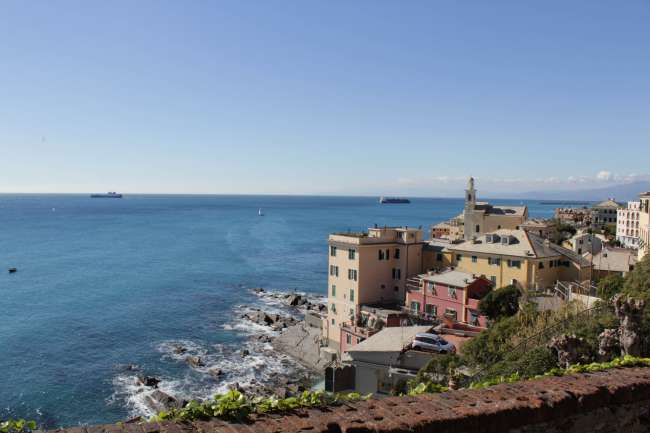
Bidaien txostenak Italia
